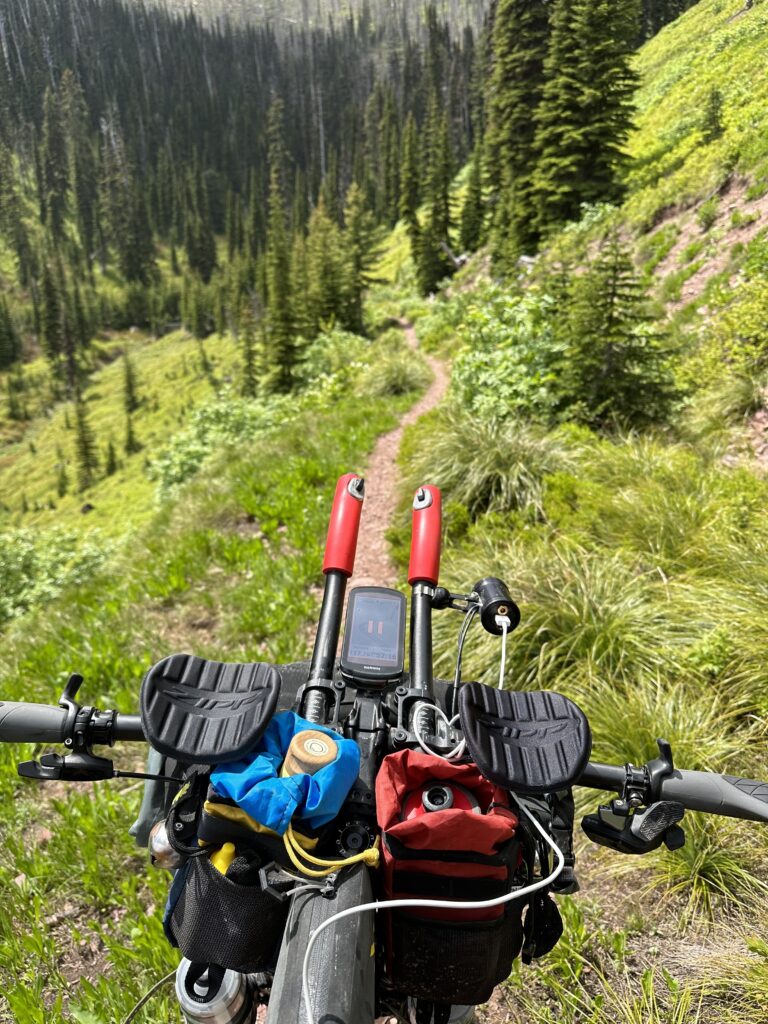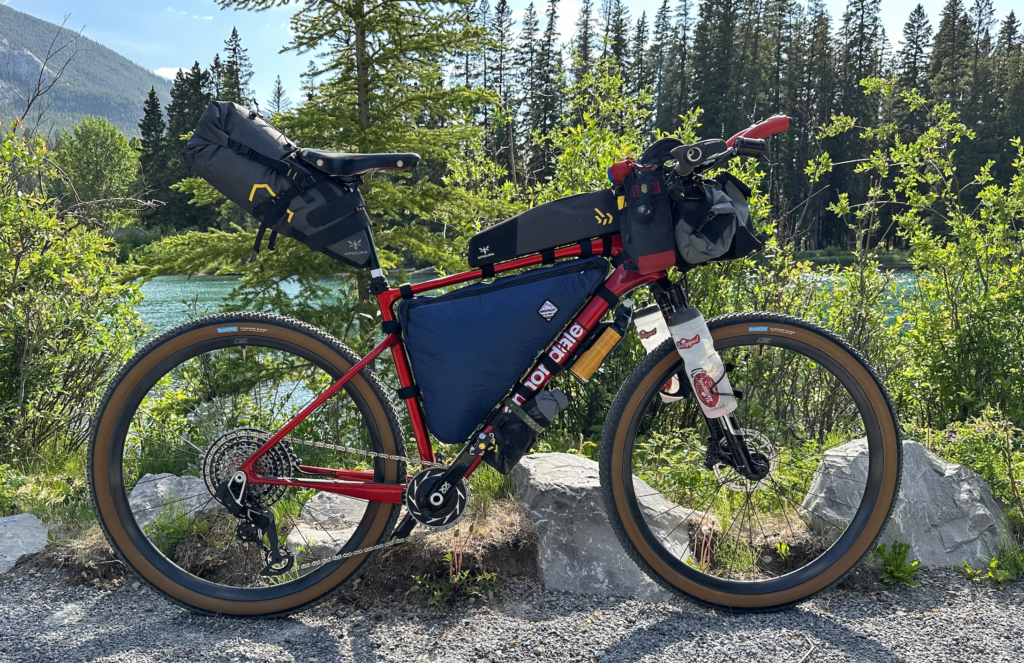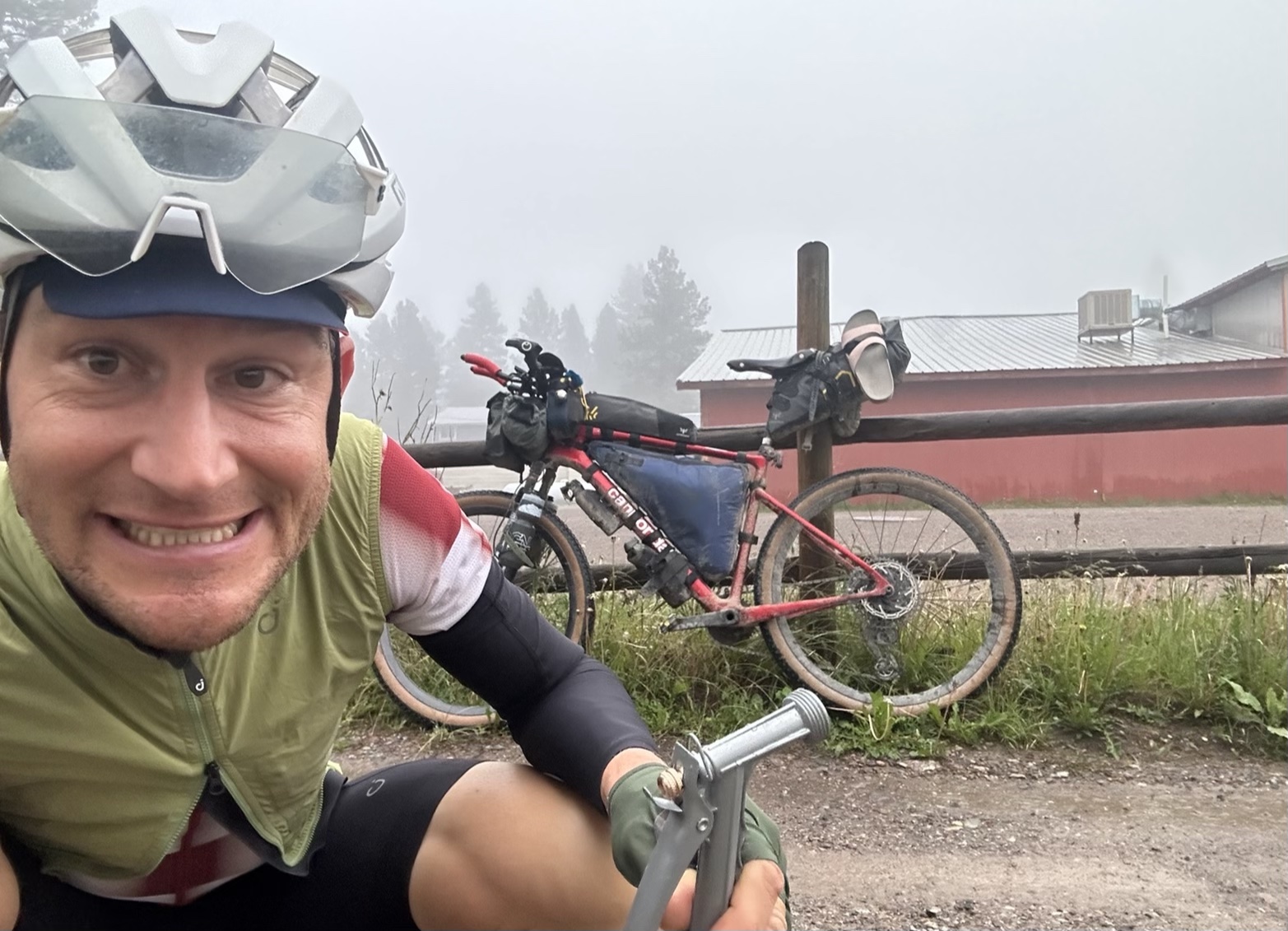UnTapped co-founder, Ted King, recently went for a very long bike ride. A nearly 750 mile bike ride, in fact. His goal, however, was the 2,700 mile Tour Divide, a self-supported bikepacking race from Banff, Alberta, Canada to Antelope Wells, New Mexico at the border of the United States and Mexico.
By not reaching the finish line, this trip could be labeled as unsuccessful. There is still lots to be learned from unachieved goals and in searching for a silver lining, Ted recently wrote up a list of the six things he learned along his first attempt at the Tour Divide.
- Bikepacking is an all-encompassing job. Admittedly, “job” is a funny term for something that you’re likely doing voluntarily, but you get the point. At the most basic level, bikepacking is very simple – ride, eat, sleep, repeat. But there’s a constant shuffle of checking battery levels, recharging on the fly, any number of ways to obsess over the route, consider the demands of fueling, all on top of keeping inventory of things to change or tinker with when you do stop.

- Practice. Practice, practice, practice. A simple idea to absorb, but this is a much tougher one to pull off in… practice. There’s no better way to figure out how well your sleep system works or if your bags are fully waterproof or if your otherwise very comfortable shoes will cause your feet to hurt after multiple 12+ hour days unless you’re putting in considerable time on the bike. (The answers are: very well, not entirely, and yes, they likely will.) This tidbit is as helpful for training as it is for getting your mind wrapped around the rigors of all day, multi-day events.
- Nutrition presents its challenges. There are lots of reasons why nutrition is difficult. For one, as long as you’re pedaling, your body is consuming more calories than your digestive system can handle. So at the end of every day, you’re ending up at a deficit. Two, your bags and jersey pockets can only carry so much food! So be sure to design your bag system with room to expand for those times you need to carry 3,000-4,000 calories of food. Three, ingesting that many calories — just eating that much food — is not an easy task. That’s a combination of being a large quantity of food and because your diet is frequently put together at gas stations or fast food restaurants.
I will point out that I paid particular attention to get my hands on real foods whenever I could. Sandwiches, burritos, yogurt, pickles, baked goods, and yes, nips of maple syrup whenever possible. You can only eat so many candy bars before they’re not so appealing any more.
- A 2,700 mile race is a marathon, not a sprint. Or more accurately, it’s a few more than 100 consecutive marathons. This is not in any way whatsoever news to me, but it’s so important that I find it worth repeating. I’ve done a 1,000 mile bikepacking race in the past and even that was a sprint compared to this. By that I mean, you can operate at a sleep deficit, a caloric deficit, an overall operational deficit for shorter events, but something this massive requires you to slow down, to sleep more (which in personal reflection is my biggest failing), to maintain all levels of hygiene that you can get away with cutting corners in shorter, faster events.

- Every once in a while, it’s nice to be out of your element. If you’re anything like me, the very first thing I do every single morning is find my way to the closest coffee-making contraption and make it do its thing. So quite frankly, I was more than just a tiny bit worried about how I’d operate waking up in the woods rather than within 50 feet of my coffee maker. My own bed is comforting, the ability to take a shower, to turn up or down the thermostat, those are all creature comforts that I know and adore, but I’m also equally happy to know I can live without them… on occasion, anyway. Furthermore, my coffee tastes that much better and my bed is that much more comfortable when I’m without it briefly.
- Once you start riding, (almost) all cares go away. Okay, scroll back to number one and you can see that I’m contradicting myself. But I wish I knew how peaceful all things become as soon as you start pedaling. All the previous woes regarding preparation that have kept me up at night are a thing of the past and it’s a very simple thing to move forward.
